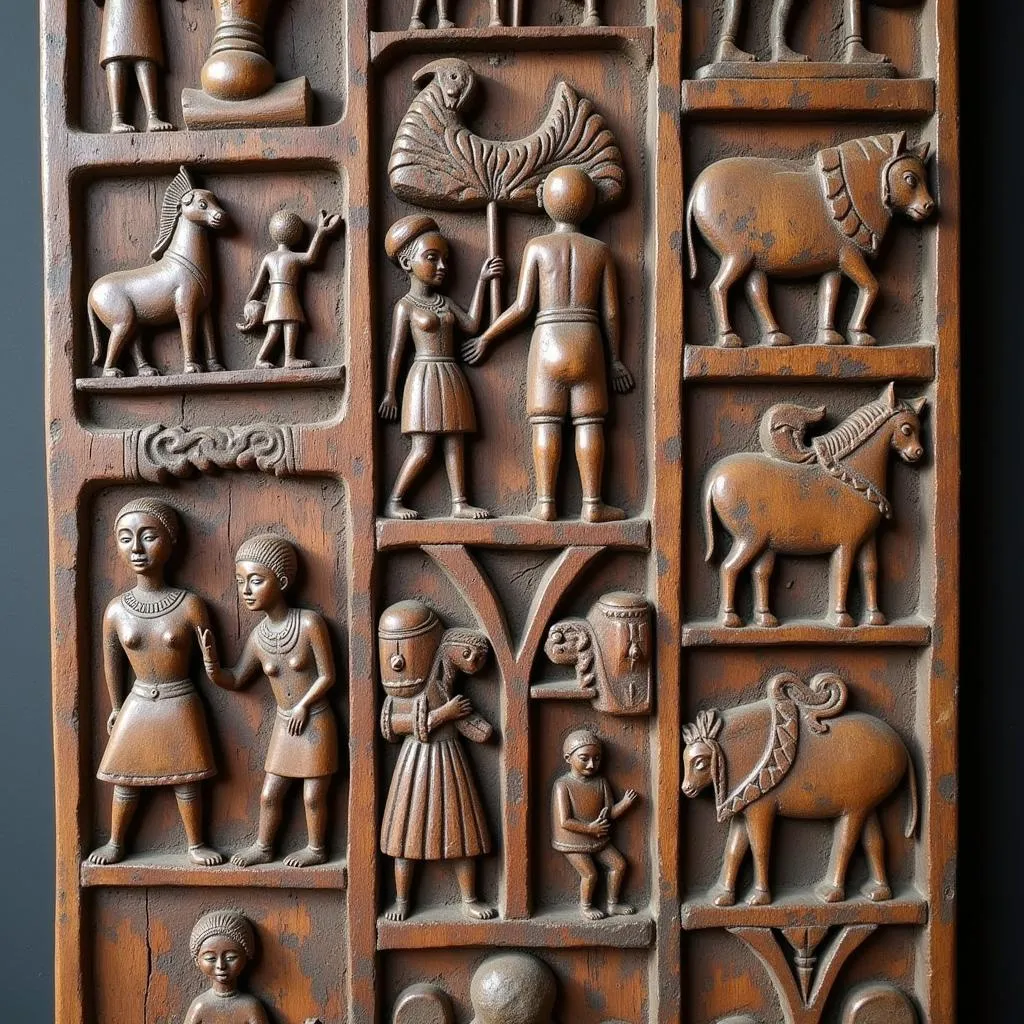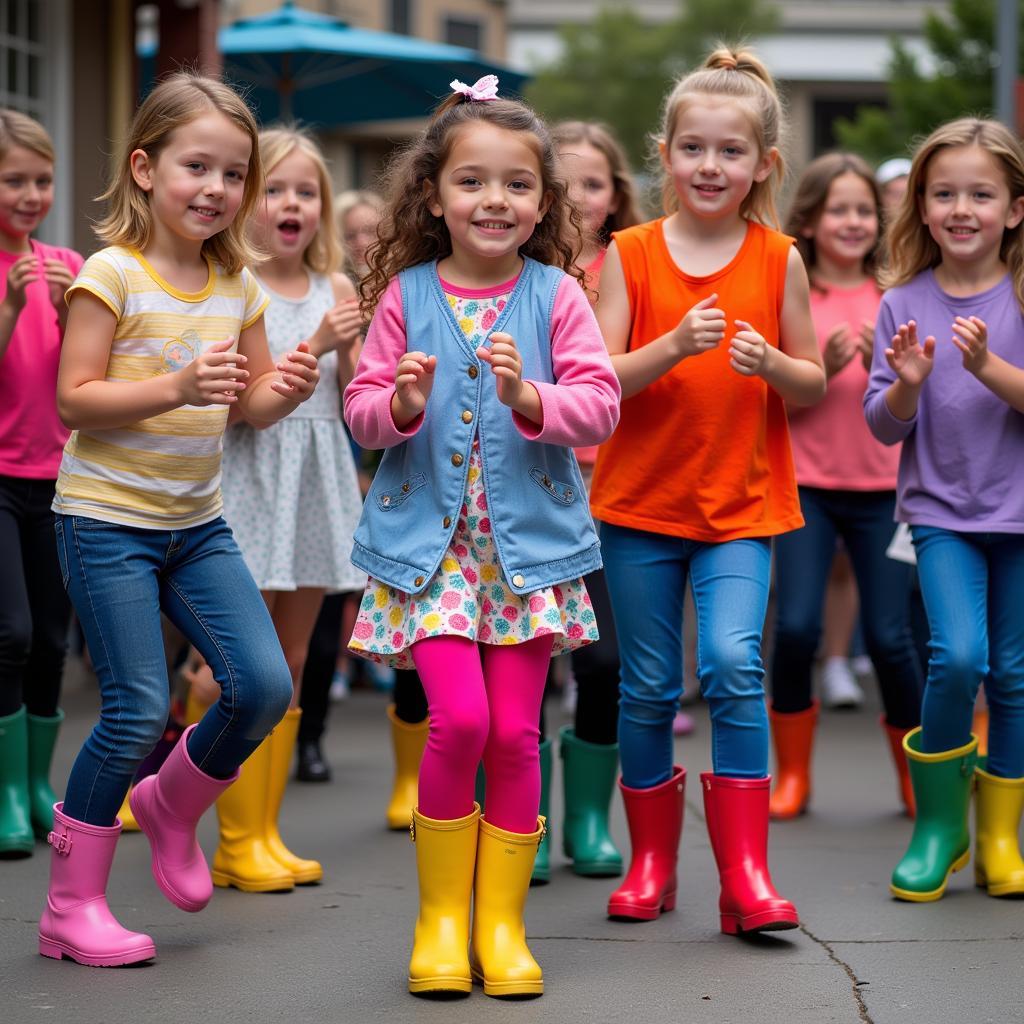African Guns and Ammo: A Complex Legacy
The trade of African Guns And Ammo has a long and intricate history, deeply intertwined with colonialism, conflict, and cultural shifts across the continent. This exploration delves into the historical context, modern implications, and future challenges surrounding firearms in Africa.
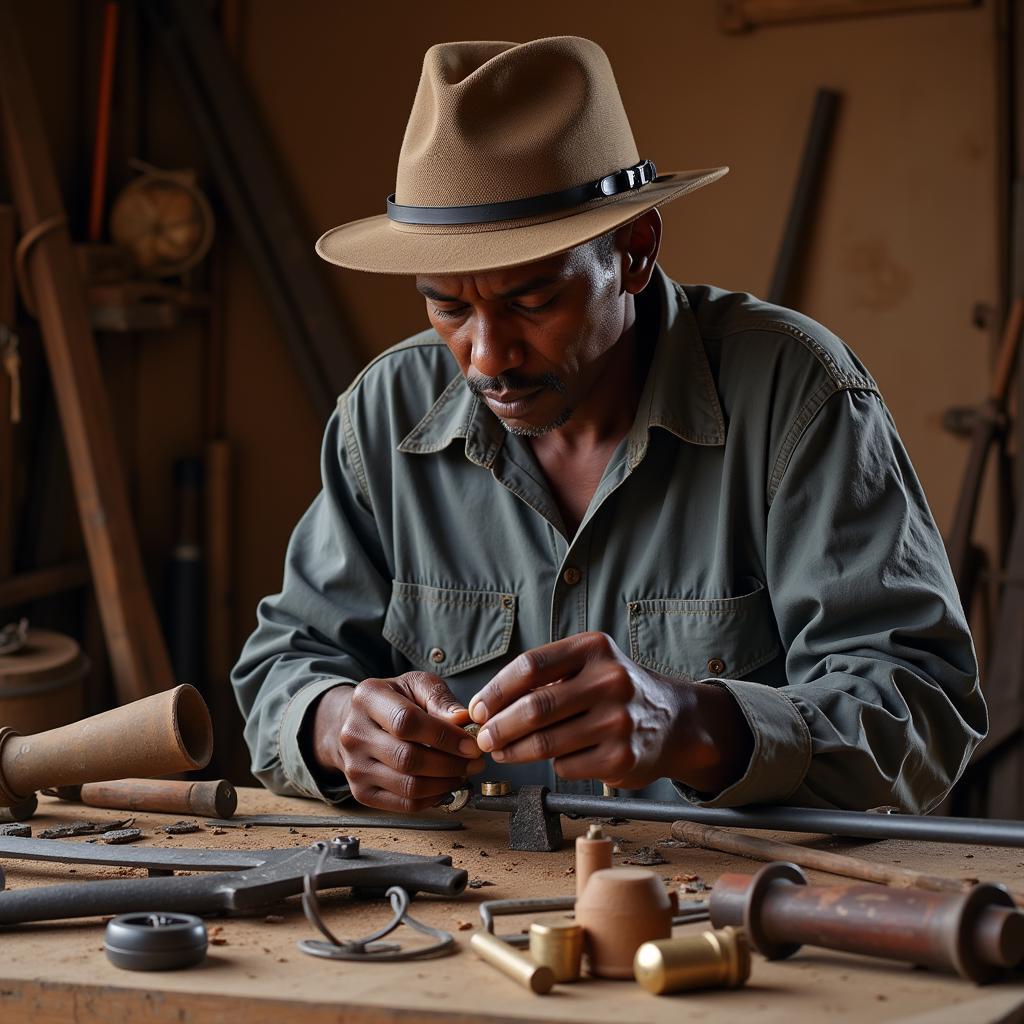 Traditional African Gunsmith Crafting a Rifle
Traditional African Gunsmith Crafting a Rifle
A Legacy Forged in Conflict
The arrival of European powers in Africa during the 15th century brought with it a new commodity: guns. Initially used for trade, firearms quickly became instruments of power, fueling intertribal conflicts and facilitating the transatlantic slave trade. European nations traded guns for slaves, creating a vicious cycle of violence and exploitation that destabilized many regions.
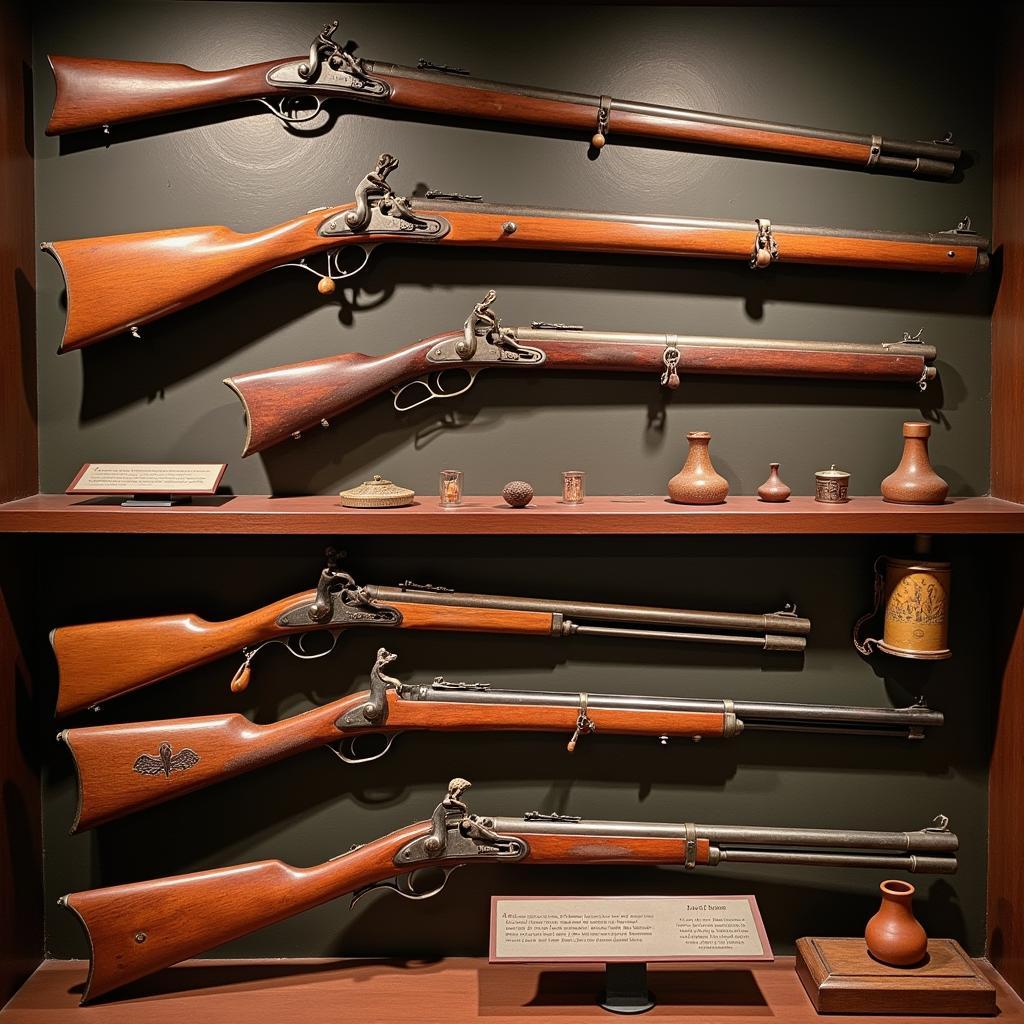 Old Muskets Displayed in a Museum
Old Muskets Displayed in a Museum
The Rise of Local Production
While European nations initially held a monopoly on gun manufacturing, local production of firearms emerged in Africa. Skilled artisans, particularly in West Africa, began crafting their own weapons, often incorporating traditional designs and materials. These locally made guns, though less sophisticated than their European counterparts, played a significant role in regional conflicts and resistance movements.
Guns and Ammo in Modern Africa
The legacy of colonial-era gun proliferation continues to cast a long shadow on modern Africa. The continent faces challenges related to:
- Small Arms Proliferation: The easy availability of small arms and light weapons fuels ongoing conflicts, insurgencies, and criminal activity.
- Poaching and Wildlife Crime: Illegal hunting with firearms decimates endangered species populations, impacting biodiversity and tourism.
- Humanitarian Crises: Armed conflicts displace communities, create refugees, and exacerbate food insecurity and poverty.
Efforts Towards Control
African nations are actively engaged in efforts to curb the illicit flow of guns and ammo:
- International Cooperation: Many countries collaborate with international organizations to track arms trafficking and implement stricter border controls.
- Disarmament Programs: Initiatives aimed at collecting and destroying illegal weapons are underway in several regions.
- Peacekeeping Missions: African Union and UN peacekeeping operations work to stabilize conflict zones and prevent the escalation of violence.
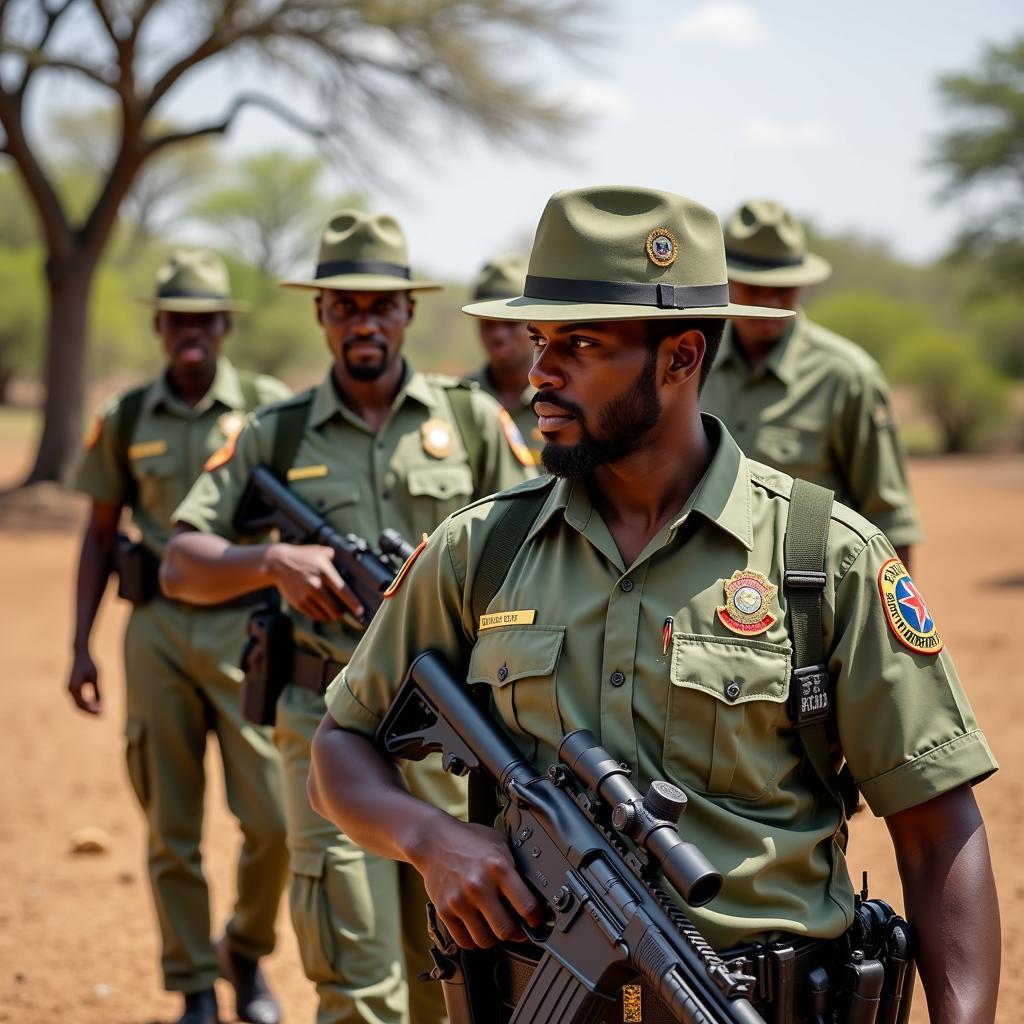 African Park Rangers Training
African Park Rangers Training
Navigating a Complex Future
Addressing the challenges posed by the proliferation of guns and ammo in Africa requires a multifaceted approach:
- Investing in Development: Tackling the root causes of conflict, such as poverty, inequality, and lack of opportunity, is crucial.
- Strengthening Governance: Promoting good governance, transparency, and the rule of law is essential for effective arms control.
- Community Engagement: Raising awareness about the dangers of small arms and engaging communities in peacebuilding initiatives is vital.
The path forward requires a commitment from both African nations and the international community to build a safer and more secure future for the continent.
FAQ
Q: What is the primary source of illegal guns in Africa?
A: While precise figures are difficult to obtain, porous borders, corruption, and poorly regulated arms markets contribute to the flow of illicit firearms.
Q: How do guns impact conservation efforts in Africa?
A: The illegal use of guns for poaching poses a dire threat to wildlife, particularly endangered species, jeopardizing biodiversity and tourism-dependent economies.
Need More Information?
Contact us for any inquiries related to this topic or other aspects of African Life.
Phone: +255768904061
Email: kaka.mag@gmail.com
Address: Mbarali DC Mawindi, Kangaga, Tanzania
We are available 24/7 to assist you.
